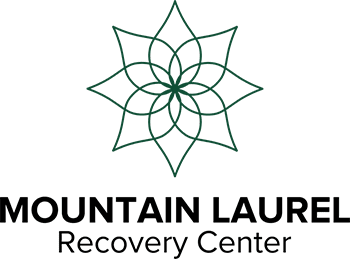 The terms ‘guilt’ and ‘shame’ are often used interchangeably, but they are not exactly the same. Shame is defined as:
The terms ‘guilt’ and ‘shame’ are often used interchangeably, but they are not exactly the same. Shame is defined as:
1) the painful feelings brought on from the consciousness of something dishonorable, improper, ridiculous, etc., done by oneself or another, 2) susceptibility to this feeling, 3) disgrace, 4) a circumstance bringing regret or disgrace.
Guilt is defined as 1) the fact or state of having committed an offense, crime, violation, or wrong against moral or penal law, 2) a feeling of responsibility or remorse for some offense, real or imagined, 3) conduct involving the commission of such crimes or wrongs. The main difference is when we feel shame, we feel that we are bad; when we feel guilt, we feel as though we did something bad. Shame is about who we are; guilt is about our behaviors. We can feel guilty without feeling shame, but we cannot feel shame without also feeling guilty.
These two feelings cause a lot of internal suffering and lead people time and again to punish themselves, inflicting even more pain. People who struggle with substance abuse often have deep-seated issues with feelings of guilt and shame, most stemming from when they were young and had no choice in matters. Using drugs and/or alcohol masked these feelings, and most likely caused more situations to feel guilty or ashamed about. It can become a vicious cycle of self abuse. Feeling guilty or shamed for past transgressions will not heal the body or mind or help our recovery. No one is perfect. We all have done things at one time or another that we are not proud of, whether we suffer from an addiction or not. Dwelling on these feelings only thwarts forward progress of our lives.
If feelings of guilt and shame continually plague your mind and affect your mood and well-being, there is a way out. It takes conscious effort to move past these feelings.
Here are some ideas that work:
- Own it – When feelings of guilt, remorse, or shame come, do not try to run and hide. Let yourself feel these feelings. Own them, feel them, and then move on. You cannot change the past.
- Fix it – In addiction, we may have done things that we would not have done otherwise. If there are actions you have done that hurt people you care about, try to fix it. For example, if you stole money, pay it back. If you broke trust, staying clean and sober one day at a time is a good way to begin earning trust back from the people you love.
- Apologize – Saying we are sorry for wrongs we have committed can go a long way. Being sorry, truly sorry, means that we will do our best to not commit that wrong again.
- Forgive yourself – Forgiving ourselves is very important. Feelings of guilt and shame play havoc on our self-esteem. The more we feel bad for what we have done, the further we fall into feeling terrible about ourselves, which can lead to relapse. Forgive yourself, and do your best not to make the same mistakes.
- Be with positive people – Find a network of positive people. If your family or old friends constantly throw in your face the wrongs you have done, you may have to detach from them for a while. Learning our boundaries and what is healthy for us is something that all people in recovery have to do. We may not be able to detach totally from some people, but we can stand our ground, make our amends, and ask them to stop bringing up the past.
- Write – Writing is cathartic. You can write about instances that caused feelings of guilt or shame. This is similar to doing a fourth step. Digging deep to get to the bottom of these feelings helps us to see them and recover from them. You will need a lined notebook, and a pen or pencil.
- Write a list of everything you feel that you have done wrong, starting with the most recent and working back in time. Leave six lines after each entry.
- Under each entry, write why you committed that wrong.
- In the third line, write down who was hurt by this action.
- In the fourth line, write down what you could have done differently.
- In the fifth line, write down what you can do to right the wrong.
When you have it all down on paper, you will be ready to move toward the solutions you wrote. Facing our feelings and learning how to cope with and overcome them strengthens the recovery process and helps prevent relapse.

 The terms ‘guilt’ and ‘shame’ are often used interchangeably, but they are not exactly the same. Shame is defined as:
The terms ‘guilt’ and ‘shame’ are often used interchangeably, but they are not exactly the same. Shame is defined as: